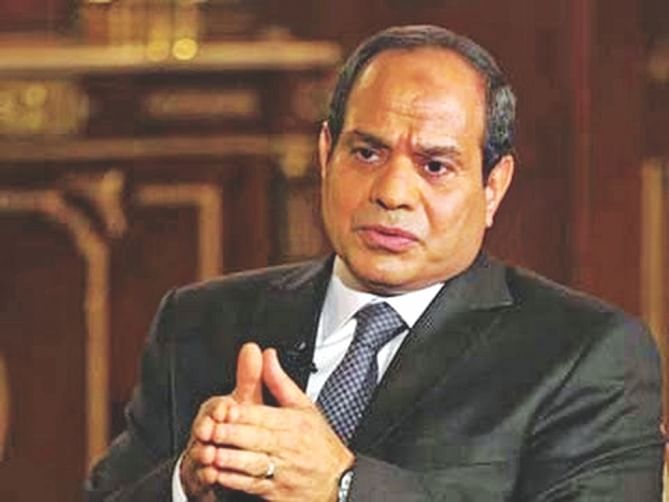Sisi turns page on Arab Spring
Sisi turns page on Arab Spring

A year after a bloody Cairo crackdown, President Abdel Fattah al-Sisi has tightened his grip on Egypt, crushed the Muslim Brotherhood, jailed top opponents and turned the page on the Arab Spring, critics say.
On August 14, 2013, after having overthrown Egypt's first freely elected president, Mohamed Morsi, the crackdown on thousands of his supporters at protest camps in Cairo's Rabaa al-Adawiya and Nahda squares left hundreds dead.
The assault was "one of the largest killings of demonstrators in a single day in recent history," said New York-based Human Rights Watch in a report released yesterday to mark the anniversary.
In Rabaa al-Adawiya alone, at least 817 people were killed, it said, calling for top officials to be investigated for likely "crimes against humanity".
According to an AFP correspondent who was at the square, more than 100 protesters were killed several hours into the crackdown.
Police said eight policemen also died in Rabaa, from a total of 42 policemen killed across Egypt that day.
The crackdown was launched after thousands of pro-Morsi supporters refused to end their sit-ins despite repeated warnings by the interim authorities installed by then army chief Sisi.
Since that day, more than 1,400 people have been killed in street clashes, including the Rabaa carnage, over 15,000 jailed including Morsi and the top leadership of his Muslim Brotherhood, and over 200 sentenced to death in speedy trials.
The authorities have also dissolved the Brotherhood's political arm, the Freedom and Justice Party, since Sisi became Egypt's second democratically elected president following a landslide victory in a May vote.
HRW said the Rabaa assault was methodically planned by top Egyptian government officials.
"This wasn't merely a case of excessive force or poor training. It was a violent crackdown planned at the highest levels of the Egyptian government," said HRW's executive director Kenneth Roth.
"Many of the same officials are still in power in Egypt, and have a lot to answer for."
Roth and fellow activist Sarah Leah Whitson were barred from entering Egypt ahead of yesterday's release of the report.
Sisi had made it clear even before becoming president that his priority was Egypt's stability rather than democratic ideals.
It could take "20 to 25 years to achieve true democracy" in Egypt, Sisi said in early May.
The crackdown has crippled the Brotherhood, which swept all elections after Mubarak's fall until Morsi's ouster, and triggered divisions within its ranks, according to analysts.
Officials accuse the movement of being implicated in militant attacks which they say have killed more than 500 security personnel since the July 2013 ouster of Morsi.